Donald Trump approves plan to create independent cyber command
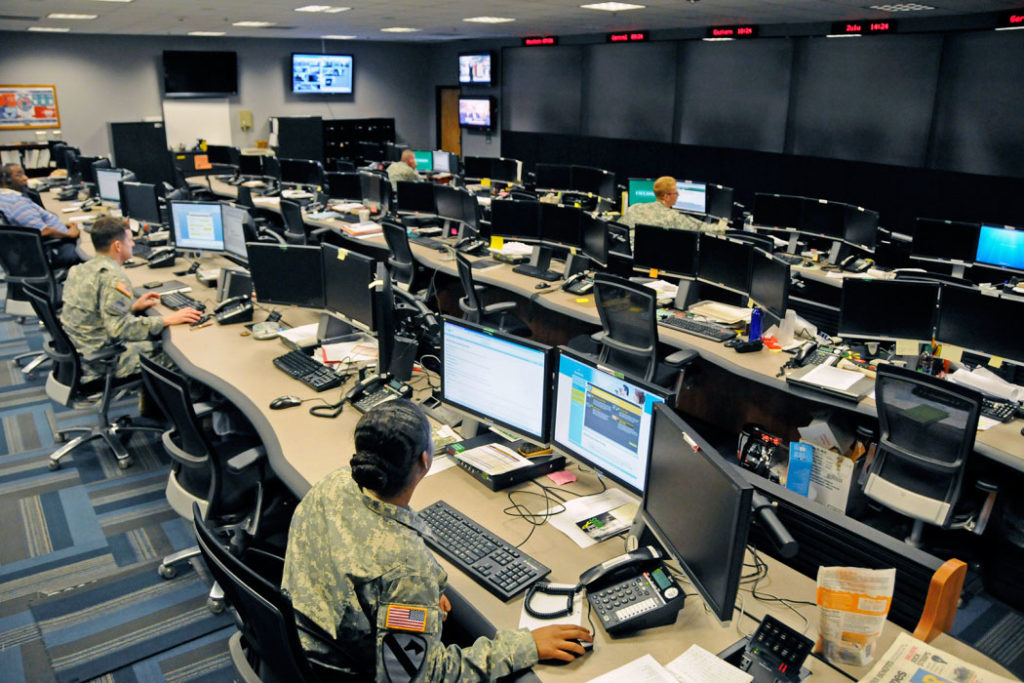
President Donald Trump has approved a long-delayed Pentagon plan to create an independent and more aggressive cyber command in order to beef up cyberwar operations against the Islamic State group and other foes. The White House announcement Friday means U.S. Cyber Command may eventually be split off from the intelligence-focused National Security Agency. For now, Trump has agreed to raise the stature of Cyber Command within the military and give it more autonomy. “This new Unified Combatant Command will strengthen our cyberspace operations and create more opportunities to improve our nation’s defense,” Trump said in a written statement. “The elevation of United States Cyber Command demonstrates our increased resolve against cyberspace threats and will help reassure our allies and partners and deter our adversaries.” Making cyber an independent military command will put the fight in digital space on the same footing as more traditional realms of battle on land, in the air, at sea and in space. The move reflects the escalating threat of cyberattacks and intrusions from other nation states, terrorist groups and hackers, and comes as the U.S. faces ever-widening fears about Russian hacking following Moscow’s efforts to meddle in the 2016 American election. The goal is to give Cyber Command more autonomy, freeing it from any constraints that stem from working alongside the NSA, which is responsible for monitoring and collecting telephone, internet and other intelligence data from around the world – a responsibility that can sometimes clash with military operations against enemy forces. Sen. John McCain praised the move, saying the administration must now develop a clear policy and strategy for deterring and responding to cyber threats. Kenneth Rapuano, the assistant secretary of defense for homeland defense, told reporters Friday that elevating the status of Cyber Command will give it a bigger voice in advocating for resources to fight cyber threats. The plan has been languishing since last year when then-Defense Secretary Ash Carter sent a proposal to President Barack Obama to make Cyber Command an independent military headquarters and break it away from the NSA. At the time, he believed that the NSA’s desire to collect intelligence was preventing the military from eliminating IS’ ability to raise money, inspire attacks and command its widely dispersed network of fighters. After Trump’s inauguration, officials said Defense Secretary Jim Mattis endorsed much of the plan. But debate over details dragged on for months. Officials say the Pentagon plan sent to the White House calls for Army Lt. Gen. William Mayville to be nominated to lead Cyber Command, although that has not been announced. Leadership of the NSA could be turned over to a civilian. The U.S. has long operated quietly in cyberspace, using it to collect information, disrupt enemy networks and aid conventional military missions. But as other nations and foes expand their use of cyberspying and attacks, the U.S. is determined to improve its ability to incorporate cyber operations into its everyday warfighting. The NSA, however, has a great deal of expertise, and officials acknowledge it will take some time for a more independent Cyber Command to get up to speed. Until then, Cyber Command and NSA will operate under a single, “dual-hatted” military commander. The cyber operation currently relies on the NSA’s expertise, staff and equipment. The two highly secretive organizations, based at Fort Meade, Maryland, have been under the same four-star commander since Cyber Command’s creation in 2009. But the Defense Department has been agitating for a separation, perceiving the NSA and intelligence community as resistant to more aggressive cyberwarfare, particularly after the Islamic State’s transformation in recent years from an obscure insurgent force into an organization holding significant territory across Iraq and Syria and with a worldwide recruiting network. While the military wanted to attack IS networks, intelligence objectives prioritized gathering information from them, according to U.S. officials familiar with the debate. They weren’t authorized to discuss internal deliberations publicly and requested anonymity. Cyber Command was created by the Obama administration to address threats of cyber espionage and other attacks. It was set up as a sub-unit under U.S. Strategic Command to coordinate the Pentagon’s ability to conduct cyberwarfare and to defend its own networks, including those that are used by combat forces in battle. Officials originally said the new cyber effort would likely involve hundreds, rather than thousands, of new employees. Since then, the command has grown to more than 700 military and civilian employees. The military services also have their own cyber units, with a goal of having, by Sept. 30, 2018, a total of 133 fully operational teams with as many as 6,200 personnel. Republish with permission of The Associated Press.
Leaked NSA doc highlights deep flaws in US election system
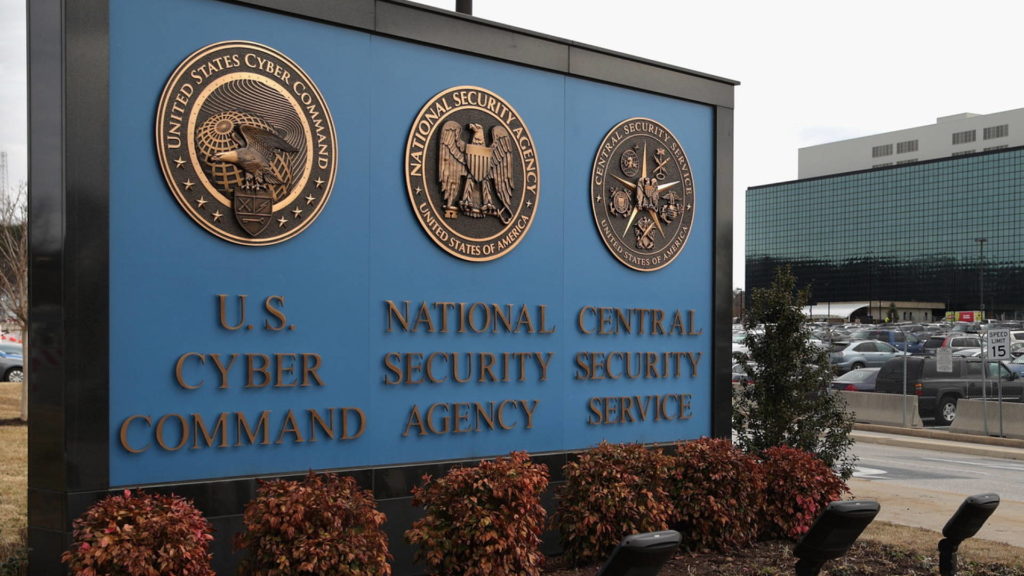
A leaked intelligence document outlining alleged attempts by Russian military intelligence to hack into U.S. election systems is the latest evidence suggesting a broad and sophisticated foreign attack on the integrity of the nation’s elections. And it underscores the contention of security experts and computer scientists that the highly decentralized, often ramshackle U.S. election system remains profoundly vulnerable to trickery or sabotage. The document, purportedly produced by the U.S. National Security Agency, does not indicate whether actual vote-tampering occurred. But it adds significant new detail to previous U.S. intelligence assessments that alleged Russia-backed hackers had compromised elements of America’s electoral machinery. It also suggests that attackers may also have been laying groundwork for future subversive activity. The operation described in the document could have given attackers “a foothold into the IT systems of elections offices around the country that they could use to infect machines and launch a vote-stealing attack,” said J. Alex Halderman, a University of Michigan computer scientist. “We don’t have evidence that that happened,” he said, “but that’s a very real possibility.” Computer scientists have proven in the lab that once sophisticated attackers are inside an election network, they could manipulate pre-election programming of its systems and alter results without leaving a trace. Sen. Mark Warner of Virginia, the ranking Democrat on the Senate intelligence committee, said Tuesday that hacking into state voting systems ahead of the Nov. 8 vote was more widespread than has been disclosed. Attempts by Russia to “break into a number of our state voting processes” was “broad-based,” he said, without offering details. In Moscow, a Kremlin spokesman categorically denied Tuesday that Moscow had tried to hack the U.S. elections. Warner did not directly address the classified intelligence report published Monday by The Intercept, an online news outlet. The Associated Press has not independently verified the authenticity of the report, although its apparent leaker, an NSA contract worker, was arrested last weekend in Georgia. The NSA document says Russian military intelligence first targeted employees of a Florida voting systems supplier in August. Apparently exploiting technical data obtained in that operation, the cyber spies later sent phishing emails to more than 100 local U.S. election officials just days ahead of the Nov. 8 vote, intent on stealing their login credentials and breaking into the their systems, the document says. The emails packed malware into Microsoft Word documents and were forged to give the appearance of being sent by the system vendor, VR Systems of Tallahassee, Florida. The Department of Homeland Security knew in September that hackers believed to be Russian agents had targeted the voter registration systems of more than 20 states. To date, no evidence of tampering with vote tallies or registration rolls has emerged. The U.S. elections system is a patchwork of more than 3,000 jurisdictions overseen by the states with almost no federal oversight or standards. The attack sketched out in the NSA document appears designed specifically to cope with that sprawl. The NSA document did not name any of the states where local officials were targeted by the emails masquerading as being from VR Systems. But in September, the FBI held a conference call with all 67 county elections supervisors in the battleground state of Florida to inform them of infiltration of VR Systems without naming the company. Ion Sancho, who retired as Leon County supervisor in December, said he later learned from industry contacts that it was VR Systems. VR Systems officials did not respond directly to questions emailed by the AP. In a statement, the company said it only knows of a “handful” of customers who received the fraudulent email, adding that it had “no indication” that anyone had clicked on the malware. The NSA document says at least one account was likely compromised. The company makes software for on-site voter registration at polling stations and backend systems for voting management, according to its website, which says it has customers in California, Florida, Illinois, Indiana, New York, North Carolina, Virginia, and West Virginia. VR Systems’ electronic poll books – electronic systems used to verify registered voters at polling places – experienced problems on Nov. 8 in Durham County, North Carolina. The issue forced officials to abandon the system, issue paper ballots and extend voting hours. North Carolina’s state elections director said Tuesday that officials would investigate to see if officials in Durham County were targeted and possibly compromised. Iowa University’s Douglas Jones is among computer scientists who say voter registration systems are particularly vulnerable to tampering, in part because they are on the internet. Someone trying to cause chaos and discredit an election could delete names from registration rolls prior to voting – or request absentee ballots en masse. In the latter case, a voter showing up at the polls on Election Day would be recorded as having already cast their ballot. That could force voters to file provisional ballots, and provoke long lines. There is no evidence any of that happened last Election Day. Republished with permission of The Associated Press.
Analysis: Reality catching up with Donald Trump on Russia
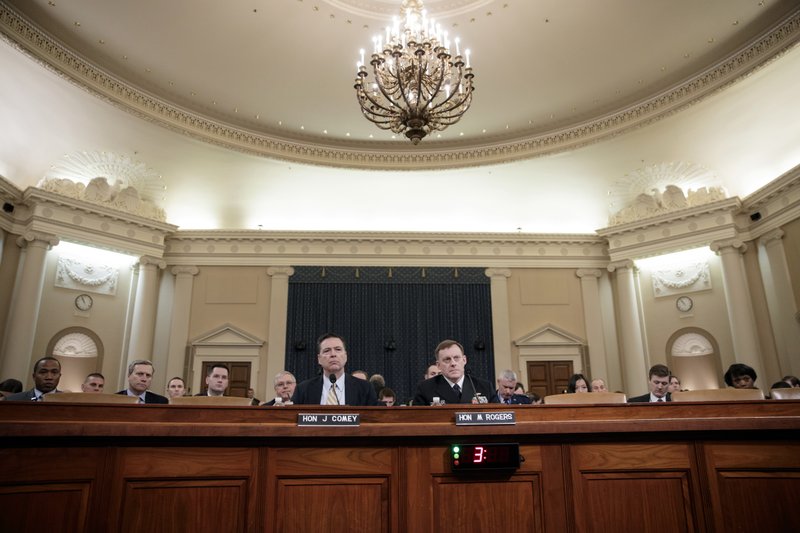
Reality is catching up with President Donald Trump. Hours after Trump dismissed reports that his campaign associates were being scrutinized for colluding with Russia as “fake news,” FBI Director James Comey confirmed the investigation is real. The FBI chief also repeatedly insisted there was no evidence to back up Trump’s explosive claim that his predecessor wiretapped his New York skyscraper. And Adm. Michael Rogers, head of the National Security Agency, knocked down a report about Britain helping President Barack Obama with the alleged surveillance, although the White House had pointed to the report to try to boost Trump’s case. Taken together, the disclosures in Monday’s lengthy House intelligence committee hearing amounted to an extraordinary undercutting of a president, whose headline-grabbing accusations and Twitter-friendly attacks crumbled quickly under the weight of sworn congressional testimony from some of the nation’s top security officials. Many of Trump’s most ardent supporters are unlikely to be swayed by Monday’s spectacle. Still, Trump’s credibility and his standing as a reliable ally for his fellow Republicans in Congress are less assured. Even if his advisers are ultimately cleared in the Russia probe, as the White House insists they will be, the investigation could loom over Trump’s presidency for months or even years, distracting from the ambitious domestic agenda he’s vowed to enact. That reality was abundantly clear Monday. Most cable news channels carried Comey and Rogers’ five hours of testimony live instead of the first congressional hearing for Neil Gorsuch, Trump’s widely praised nominee for the Supreme Court. The Russia hearings came as Trump tried to give a hard sell to Republicans wary of his health care package, a legislative gamble with long-lasting implications for Trump’s relationship with his own party. The president’s political position was already shaky heading into Monday’s hearing, the first of several public sessions the House and Senate intelligence committees are expected to hold. His approval rating has tumbled to 39 percent, according to a new Gallup poll, down 6 points from a week earlier. Trump has long been shadowed by questions about his ties to Russia, given his friendly posture toward Moscow and his advisers’ curious web of ties to Russia. The White House insists the campaign did not coordinate with Russia on the hacking of Democratic groups during the election and dismisses the swirling controversy as little more than a political witch hunt. Yet Monday’s hearings left the White House scrambling for cover, though there was little to be found. Spokesman Sean Spicer launched into a series of confounding arguments during his daily briefing. He touted statements from lawmakers and former Obama administration officials saying they had seen no evidence of collusion between Trump associates and Russia. But he dismissed nearly identical statements from some of those same officials about Trump’s wiretapping allegations, saying it was too early in the investigations to draw any conclusions. In one particularly eyebrow-raising moment, Spicer resorted to claiming one associate, Paul Manafort, had a “very limited role” in the 2016 election. In fact, Manafort was hired in March as Trump’s convention manager and promoted to campaign chairman in May. Spicer also described foreign policy adviser Michael Flynn as simply a “volunteer.” Flynn traveled frequently with the president, delivered a high-profile speech at the Republican National Convention and served as his first National Security Adviser. Both Manafort and Flynn were fired by Trump after revelations about their connections to Russia. Manafort left the campaign in August, when news reports about his business ties to pro-Moscow Ukrainian oligarchs became a political liability. Flynn was fired in February for misleading top officials about his contacts with Russia’s ambassador to the United States. Both Manafort and Flynn are among the Trump associates under scrutiny for possible contacts with Russia during the election. The Senate intelligence committee has also asked Roger Stone, a longtime Trump adviser, and Carter Page, an investment banker who briefly advised the campaign on foreign policy, to retain documents related to its inquiry. The White House, with the backing of some Republican lawmakers, says the real controversy is how the investigation into Trump’s advisers became public. They argue the focus of the probe should be ferreting out who leaked classified information. Trump tried to go on offense in the middle of the hearing, launching a series of tweets from his official White House account, including one that appeared to blame the Obama administration for leaking details of Flynn’s contacts with the Russian envoy. Another tweet incorrectly said Comey and Rogers told lawmakers that Russia “did not influence” the electoral process. In a moment of real-time fact-checking, the FBI director made clear that was not a declaration he had made. “We don’t have any information on that subject,” he said. Republished with permission of The Associated Press.
NSA watchdog on leave in whistleblower case
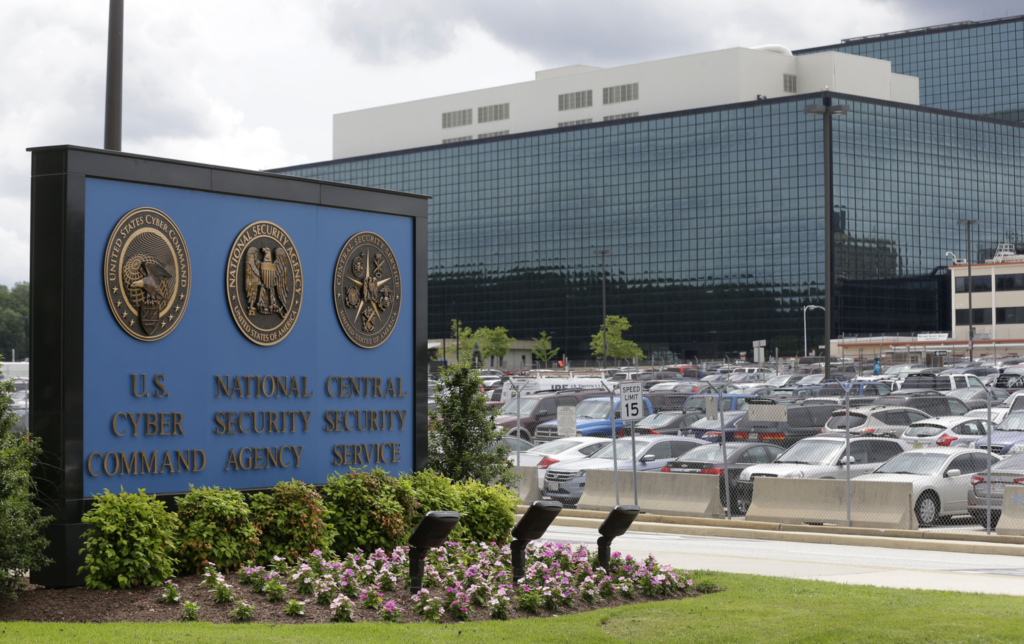
Allegations of retaliation against a whistleblower at the National Security Agency have left its top watchdog fighting for his job, according to an intelligence official and another individual familiar with the case. The case could offer some credence to Edward Snowden‘s claim that he could not have reported the government’s domestic surveillance program without facing reprisals. George Ellard, the NSA’s inspector general, was placed on administrative leave after he refused to give the whistleblower a certain job assignment. The Project on Government Oversight, an advocacy group, first reported last week that Adm. Mike Rogers, director of NSA, had placed Ellard on leave and recommended that he be terminated. Ellard is appealing that decision. Ellard received attention in 2014 for remarks at Georgetown University Law Center criticizing Snowden, the former NSA contractor who had leaked secret documents about the surveillance program. Snowden says he went public because he feared retaliation from his superiors if he had raised his concerns with them. Ellard said at Georgetown that Snowden could have safely come to him. Ellard’s case is the first to move completely through a process created by President Barack Obama in 2012 to ensure that intelligence employees can effectively report waste, fraud and abuse while protecting classified information. The directive prohibits agencies from retaliating against them or taking away security clearances or an employee’s access to classified information. The case stemmed from a whistleblower’s claims of financial misconduct by NSA officials involving a conference in Nashville, Tennessee. The whistleblower, in a brief email to The Associated Press, said that after he raised his concerns, his name was disclosed to Ellard in violation of rules intended to protect government employees who want to report misconduct. The whistleblower said his email response had been cleared by the NSA. The agency declined to comment independently on the case. Ellard’s attorney did not respond to requests for comment. It’s not clear who revealed the whistleblower’s identity to Ellard. But the whistleblower said that after Ellard learned who he was, “I was denied an assignment within the NSA inspector general’s office of investigations because of my whistleblowing.” He sent the email to the AP on condition of anonymity because the case is still active. Rogers’ decision to recommend Ellard’s dismissal followed an eight-month investigation by a panel of inspectors general at the CIA, Treasury and Justice Department, according to an intelligence official, who was not authorized to disclose details about the case and spoke on condition of anonymity. The trio was empaneled in October 2015 and issued its decision in May. The Justice and Defense departments declined to comment on the decision. Louis Clark, director of the Government Accountability Project, said he was happy that the process set up by Obama’s directive was finally being used, but expressed disappointment that it has taken so long for it to happen. “It was so slow because the intelligence agencies are extremely hostile to whistleblowing,” he said. The fate of Obama’s directive is uncertain. It will be up to Donald Trump, after he becomes president, to decide whether to continue it. Trump has said he doesn’t trust the intelligence agencies, but it’s not clear if that would make him more or less likely to protect whistleblowers. Timothy Edgar, Obama’s first director of privacy and civil liberties for the White House national security staff, says there is cause for serious concern about the future of whistleblowers. “What we’re left with, I think, is probably primarily the integrity and bravery of people in the bureaucracy, who, despite those obstacles are willing to say ‘no’ if they are involved in activities that they think are serious violations of the Constitution,” Edgar said. Republished with permission of The Associated Press.
NSA contractor arrest highlights challenge of insider threat
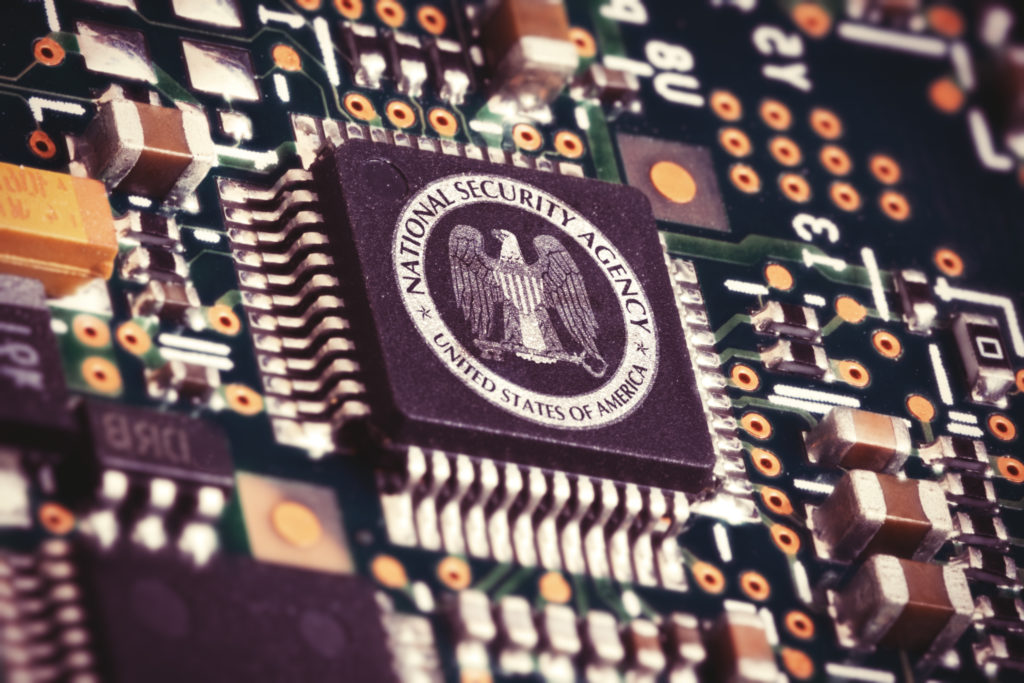
The arrest of a National Security Agency contractor accused of stealing classified information represents the second known case of a government contractor being publicly accused of removing secret data from the intelligence agency since 2013. The latest arrest came despite efforts to reform security after the Edward Snowden disclosures, especially in regard to insider threats. Harold Thomas Martin III, 51, of Glen Burnie, Maryland, was arrested by the FBI in August, after federal prosecutors say he illegally removed highly classified information and stored the material in his home and car. A defense attorney said Martin did not intend to betray his country. The arrest was not made public until Wednesday, when the Justice Department unsealed a criminal complaint that accused Martin of having been in possession of top-secret information that could cause “exceptionally grave danger” to national security if disclosed. The fact that Snowden and now Martin – both working for Booz Allen Hamilton as contractors for NSA – were able to leave the NSA with highly classified documents, especially given the supposed security upgrades put into place, raises the question of whether the intelligence agency’s efforts to tighten internal security afterward were effective or adequate. The NSA declined to comment. “One key thing we don’t have visibility into now is how he was caught, because that would provide some insight into whether the reforms that were put in post-Snowden were effective or not, or their relative efficacy,” said Rajesh De, who was the NSA’s general counsel when the Snowden story broke and remained there until last year. Snowden’s 2013 theft of documents that were leaked to journalists revealed the NSA’s bulk collection of millions of Americans’ phone records. Rep. Adam Schiff of California, the senior Democrat on the House Permanent Select Committee on Intelligence, said in a statement that “it is painfully clear that the intelligence community still has much to do to institutionalize reforms designed to protect (U.S. government secrets) from insider threats.” While details remain sparse, Martin’s arrest also illustrates the difficulty of guarding against an insider threat given that employees that, by virtue of their clearance level and jobs, must be entrusted with the nation’s secrets. It’s unlikely, given the thousands of people in the intelligence community, “you’re going to be able to stop every incident of somebody taking documents if they’re determined to do so. But the real question is how quickly can you detect it, how quickly can you mitigate the harm of any such incident,” De said. Adm. Mike Rogers, who heads the NSA, has repeatedly spoken since 2013 about efforts the agency has taken to ensure that such a thing doesn’t happen again. He has said the agency tried to strike a balance so as to not overly upset workers, who are law-abiding citizens, with aggressive internal security mechanisms. On Wednesday evening at a Harvard University event, Rogers declined to offer details on the ongoing investigation but officially confirmed that the contractor was employed at the NSA, which monitors and collects sensitive information and data, mostly from overseas. Among the classified documents found with Martin, the FBI said, were six that contain sensitive intelligence – meaning they were produced through sensitive government sources or methods that are critical to national security – and date back to 2014. All the documents were clearly marked as classified information, according to a FBI affidavit accompanying the complaint. The complaint does not specify which documents Martin is alleged to have taken. He was arrested around the same time U.S. officials acknowledged an investigation into a cyber leak of purported hacking tools used by the NSA. That toolkit consists of malicious software intended to tamper with firewalls, the electronic defenses protecting computer networks. Those documents were leaked by a group calling itself the “Shadow Brokers.” The complaint does not reference that group or allege a link to Martin. White House spokesman Josh Earnest said President Barack Obama takes the situation “quite seriously. And it is a good reminder for all of us with security clearances about how important it is for us to protect sensitive national security information.” The New York Times first reported the arrest of a NSA contractor who worked for Booz Allen Hamilton. Booz Allen said in a statement that after learning of the arrest of one of its employees, it contacted law enforcement authorities to offer its cooperation and fired the worker. At Martin’s home, investigators found stolen property valued at “well in excess of $1,000,” the complaint said. He voluntarily agreed to an interview. “Martin at first denied, and later when confronted with specific documents, admitted he took documents and digital files from his work assignment to his residence and vehicle that he knew were classified,” the affidavit says. “Martin stated that he knew what he had done was wrong and that he should not have done it because he knew it was unauthorized.” He has been in custody since his arrest in August. “There is no evidence that Hal Martin intended to betray his country,” his public defenders, James Wyda and Deborah Boardman, said in a statement. “What we do know is that Hal Martin loves his family and his country. He served honorably as a lieutenant in the United States Navy, and he has devoted his entire career to serving his country. We look forward to defending Hal Martin in court.” The complaint charges Martin with unauthorized removal and retention of classified materials and theft of government property. In 2013, journalists relying on classified documents stolen by Snowden revealed the NSA’s bulk collection phone records and spurred a national debate on privacy and national security. Rogers has said that since those revelations, he’s repeatedly reminded the workforce of their agreement to never divulge the sensitive information they’ve been given access to. In prior comments, Rogers has said security isn’t just about technical and insider threat preparation, but also about ensuring professional behavior. “At times, I have some people telling me, ‘Hey, what this should show you is you can’t
5 things you need to know about Congress this week: 9/25/15
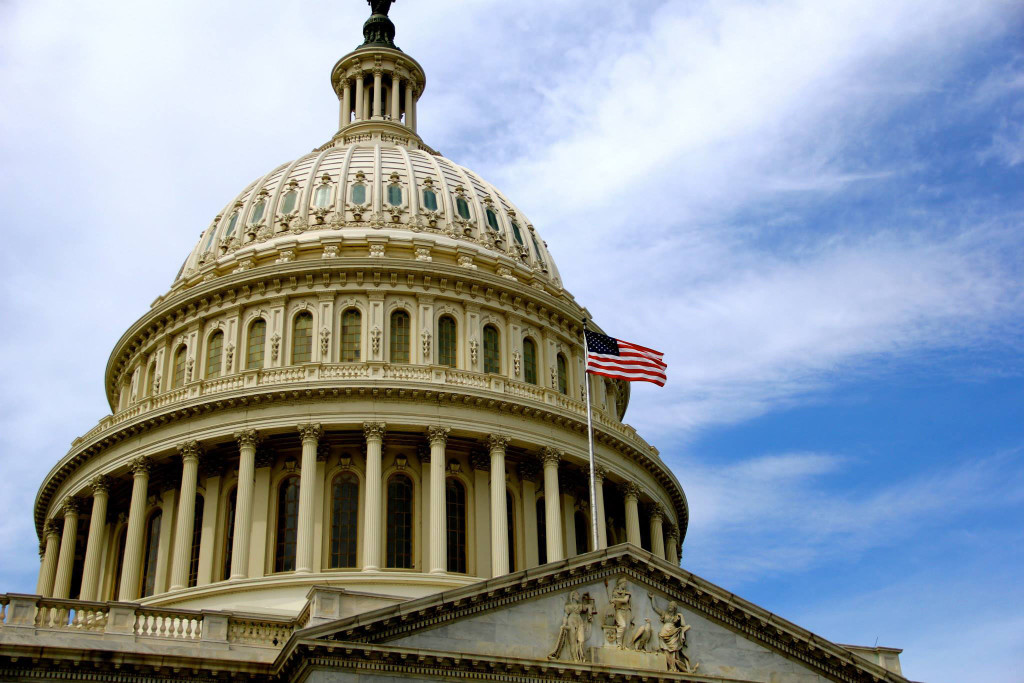
It may have had a slow start, preparing for Pope Francis, but this week in Congress turned out to be a game-changer. Here are five things that happened in Congress this week that you need to know: House Speaker John Boehner announces resignation The 13-term Ohio Congressman who led the Republican party to an impressive House majority in 2010 and again in 2012, announced he’s stepping down as Speaker of the House and will resign from Congress at the end of October. Why it matters? With a possible government shutdown on the line, over Planned Parenthood funding, Boehner was working toward a budget agreement that would avert another government shutdown whilst facing significant pushback from the conservatives in the party who were threatening to unseat him as Speaker if he acted against their wishes. Now, Boehner can simply pass a deal with the help of Democrats to keep the government from shutting down on Sept. 30. McConnell’s cloture dilemma Senate Majority Leader Mitch McConnell has yet again come up short in finding the necessary 60 votes to move forward bills by cloture. Thursday, McConnell’s effort to move a bill that would fund the government through Dec. 11, while redirecting federal funding for Planned Parenthood to other community health providers, failed 47-52. Why it matters: Earlier this month McConnell failed to find the votes to invoke cloture over the President’s Iran nuclear deal, coming up two votes shy of ending debate. With more significant votes on the horizon, McConnell must work even harder to corral the disappointed caucus and move legislation forward in order to prove the success of the new Senate leadership as we prepare to enter a presidential election year. Pope Francis addresses Congress Making history, the pope gave a 50-minute speech to a join session of Congress, where he touched on several controversial themes of his papacy in front of lawmakers — immigration, the refugee crisis, climate change and the death penalty — calling on the deeply divided Congress to come together and renew a “spirit of fraternity and solidarity, cooperating generously for the common good.” Why it matters: Pope Francis not only became the first-ever pontiff to address a joint-session of Congress, but he also had the ear of both chambers, an honor typically reserved to the President of the United States and other global political leaders. NSA Chief testifies that Hillary Clinton emails were an ‘opportunity’ for foreign spy agencies During a hearing on the NSA, GOP Senator Tom Cotton queried National Security Agency Director Mike Rogers with a series of questions related to Hillary Clinton’s use of a private email server at her home for communications as secretary of state. Why it matters: Once the overwhelming favorite for the Democratic party’s presidential nomination, Hillary Clinton again finds her campaign efforts overshadowed by her decision to use a private email server while Secretary of State. This has left some Democrats to look for an alternative — primarily the undeclared Vice President Joe Biden and Vermont Sen. Bernie Sanders. Senate Democrats offer climate change bill The same week China announced its promise to create the globe’s largest cap-and-trade program in order to help developing countries slash their greenhouse gas emissions, Senate Democratic leaders unveiled their own climate change plan. Their measure that calls for the reduction of greenhouse gas emissions by 2 percent annually through 2025 — a cut even greater than the controversial goal set by the Obama administration. Why it matters: While the bill doesn’t stand a chance of passing with a Republican-controlled Congress, Senate Democrats believe their aggressive climate change efforts will help them win the hearts of countries around the globe, and ultimately American voters who will elect them to take back control of the Senate in 2016.
NSA Director: Hillary Clinton private email server open to spying
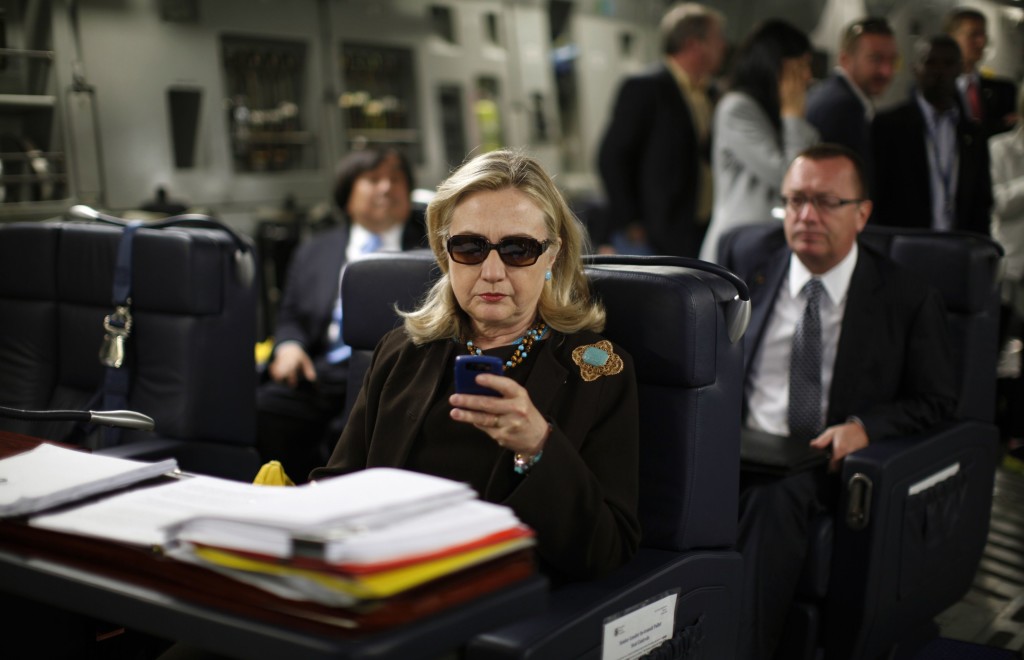
National Security Agency Director Mike Rogers says a foreign official who used a private email server to communicate would present a spying opportunity for the U.S. Rogers told senators at a hearing Thursday that he didn’t want to get dragged into the Hillary Clinton email controversy. But he acknowledged to Arkansas Republican Tom Cotton that the communications of senior U.S. officials are highly sought after by foreign intelligence agencies. Rogers says that if he learned that a top foreign official was emailing over a private server, he would consider that an intelligence-gathering opportunity. Clinton has said she is sorry she used a private email server as her exclusive email account for government business when she was secretary of state, but the issue has continued to shadow her presidential campaign. Republished with permission of the Associated Press.
Jeb Bush: NSA needs broader powers to combat “evildoers”
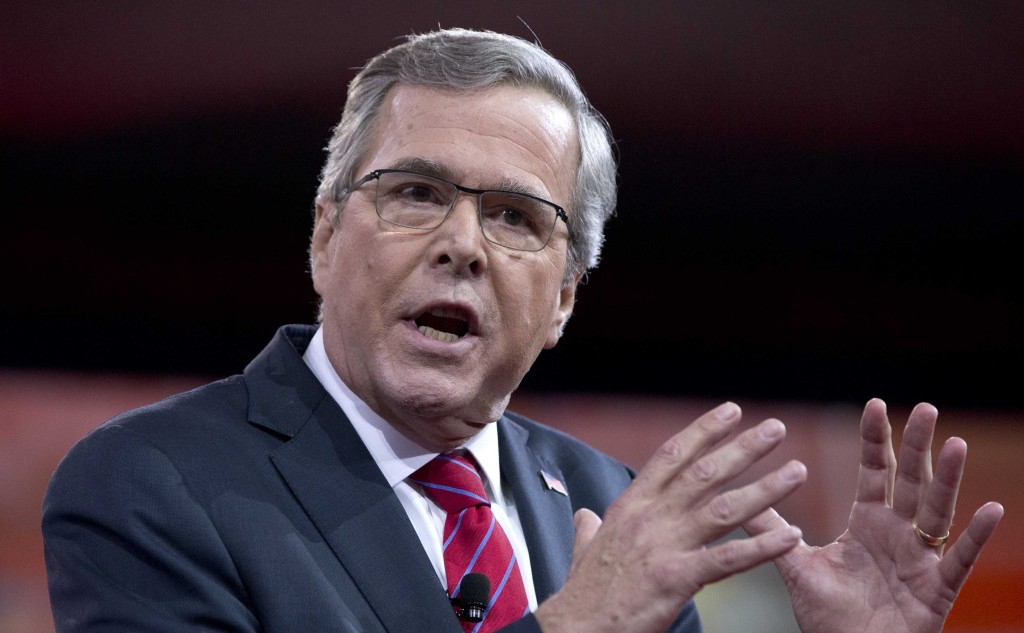
Republican presidential hopeful Jeb Bush said Tuesday that the government should have broad surveillance powers of Americans and private technology firms should cooperate better with intelligence agencies to help combat “evildoers.” At a national security forum in the early-voting state of South Carolina, Bush put himself at odds with Republican congressional leaders who earlier this year voted to end the National Security Agency’s bulk collection of phone records. The former Florida governor said Congress should revisit its changes to the Patriot Act, and he dismissed concerns from civil libertarians who say the program violated citizens’ constitutionally protected privacy rights. “There’s a place to find common ground between personal civil liberties and NSA doing its job,” Bush said. “I think the balance has actually gone the wrong way.” Bush also said the U.S. should send more troops — he didn’t say how many — and equipment to eastern European nations in response to Russia’s increasingly aggressive posture in the region. He said Russian President Vladimir Putin should know that his “adventurism” comes with “a price to pay.” “Rather than reacting to the bad behavior, I think we need to be more forward-leaning as it relates to what the consequences will be,” Bush said. The remarks were part of Bush’s ongoing efforts to pitch an aggressive foreign policy as he struggles to break out of a crowded Republican presidential primary in which businessman and former television reality star Donald Trump has garnered much of the attention. Pushing a hawkish foreign policy is a staple of Republican presidential politics. The exception is Kentucky Sen. Rand Paul, and even the libertarian-leaning senator has refused to take military action off the table as he argues for a reduced American footprint around the world. Yet for Bush, the discussion comes with particular challenges as he tries to distance himself from former President George W. Bush, the candidate’s brother, who signed the Patriot Act into law and oversaw the 2003 invasion of Iraq. Congress voted in June to end the bulk collection of American telephone records under the Patriot Act, a controversial program that NSA contractor Edward Snowden disclosed publicly in 2013. The Obama administration announced recently that the agency later this year would destroy all the remaining records that already had been collected. Bush doubled down Tuesday on his assertions that there is “no evidence” the data collection violated civil liberties. “I’ve found not one” case, he said. The Privacy and Civil Liberties Oversight Board, an independent bipartisan agency, declared NSA’s phone records collections program illegal in 2014, and a federal court of appeals reached the same conclusion earlier this year. A May analysis from the Justice Department found that FBI agents interviewed by the inspector general’s office “did not identify any major case developments” that came from using Section 215 that allowed the bulk records collection. Bush also criticized private technology firms for using encryption to make it harder for their customers to be surveilled. “It makes it harder for the American government to do its job while protecting civil liberties to make sure evildoers aren’t in our midst,” he said. Noting that companies like Google are getting pressure from customers, Bush said “market share … should not be the be-all-end-all,” and he called for “a new arrangement with Silicon Valley in this regard.” In outlining his policy toward Russia, meanwhile, Bush suggested his approach isn’t too aggressive and, in fact, is a U.S. duty as a member of NATO. “It’s not being bellicose to say what you’ll do if someone acts in a way that creates a threat to your allies,” he said. “That’s not warmongering.” Quite the opposite, Bush concluded: “History is full of examples of appeasement, pulling back and creating greater risk than standing up for your friends and allies.” Republished with permission of The Associated Press.
2016 prospect Rand Paul in new book: GOP willing to change
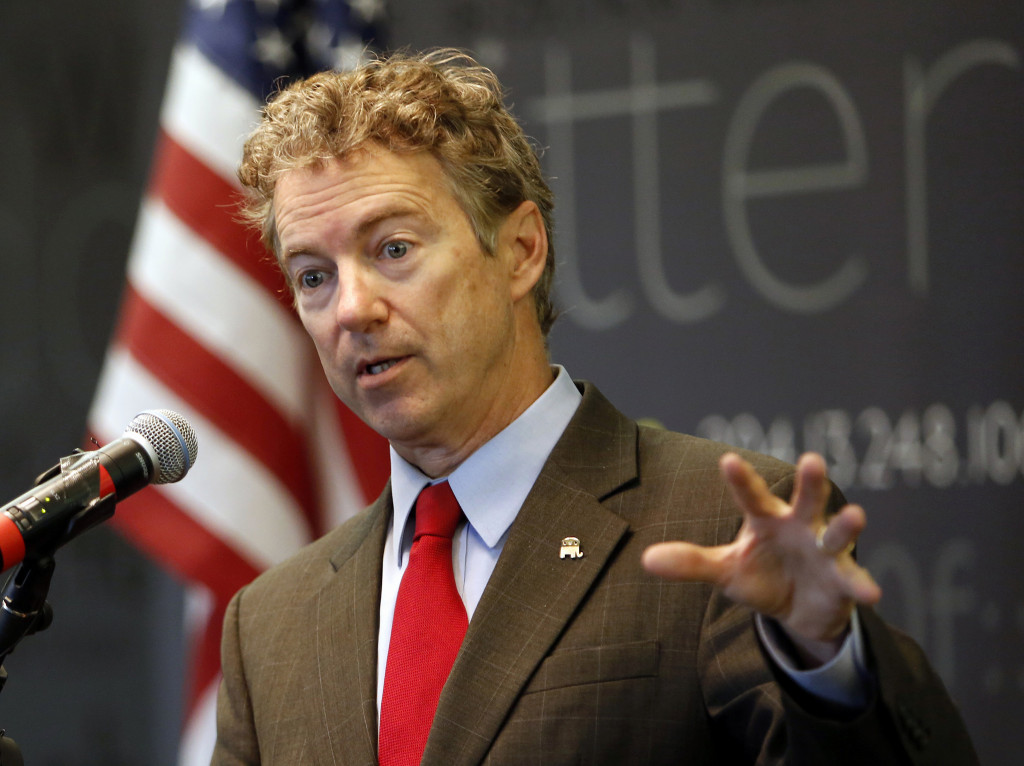
Republican presidential candidate Rand Paul reaches out in his most direct way yet to African-Americans in a new book that highlights his libertarian policies on government surveillance, the economy and criminal justice reform. “My party has let the bond it once enjoyed with minorities fray to the point that it is near beyond repair,” the Kentucky senator writes in “Taking a Stand: Moving Beyond Partisan Politics to Unite America,” set to be released later this month. He continued, “My Republican Party, the Republican Party I hope to lead to the White House, is willing to change.” Paul, 52, has made reaching out to African-Americans a centerpiece of his political brand as he embarks on his 2016 campaign for president. More than a decade has passed since the Republican Party last won a presidential contest, due in part to the GOP’s struggle with minority voters, a growing segment of the population that has overwhelmingly favored Democrats in recent years. President Barack Obama won 93 percent of the black vote in 2012, continuing his party’s overwhelming advantage with black voters that began when Republican presidential nominee Barry Goldwater opposed the Civil Rights Act of 1964. The trend is similar among Hispanic voters, who have preferred Democrats by at least 18 points in every presidential contest since at least 1980. “I don’t think we’ve done enough of taking our message to people, and I don’t think we’ve brought our message in an appropriate way,” Paul said Thursday of the GOP’s minority outreach during an interview with The Associated Press. “I think also there’s a uniqueness to my message within the Republican Party that allows me to go places that nobody else is either willing to go or able to go.” The new book, a copy of which was obtained by The Associated Press, comes as Paul plays a starring role in the debate over government surveillance. He spent hours on the Senate floor Wednesday protesting the planned extension of the Patriot Act, which includes a provision allowing the National Security Agency to collect bulk records of phone calls made by Americans. Many Republicans support the surveillance program, including Arizona Sen. John McCain, whose description of Paul as a “wacko bird” is featured prominently on the book’s back cover. In the book, Paul writes that such surveillance programs allowed the government to spy on prominent civil rights leaders in the past, most notably Martin Luther King Jr. He said he raised such concerns during a private meeting last February with then-Attorney General Eric Holder, the first African-American to hold that office. “Surveillance was used to try to cripple the civil rights movement. You would think this president above all others would be mindful of the potential for abuse in allowing so much power to gravitate to the NSA,” he wrote, referring to President Barack Obama, the nation’s first black president. “Holder nodded his understanding but was noncommittal.” He said he later challenged Holder more directly. “How could our first African American president condone pervasive spying on Americans?” Paul asked, to which he said Holder responded, “Let’s just say the administration’s position on the NSA is not monolithic.” “He left it at that, which only left me with more questions,” Paul wrote. “Did the attorney general mean he was against the spying? If so, why was his voice falling on deaf ears?” Holder, who recently left his position as the nation’s top law enforcement officer, did not respond to a request for comment about Paul’s description of the meeting. Paul also criticizes former President George W. Bush for adopting the Patriot Act following the 9/11 terrorist attacks, charging that “because of President Bush’s overreach, the Bill of Rights protection of our privacy began to fall apart.” He adds that Obama has further shredded such protections. “Power needs to be reined in, because we never know when a leader will arise who will use the power to target Jews or blacks or evangelical Christians or the tea party or any other minority,” he wrote. Paul won praise from black leaders as one of the only members of Congress to visit Ferguson, Missouri, after police shot to death an unarmed black man last year. But he was widely criticized for his comments after racial violence erupted more recently in Baltimore, when he said in a television interview he was “glad the train didn’t stop” as he passed through the city. Paul writes at length about his support for criminal justice reform, which includes ending mandatory minimum sentences for nonviolent offenders and restoring voting rights to nonviolent felons. He also opposes the use of military weapons by local police departments and supports the creation of economic freedom zones with low tax rates in depressed urban areas. “Although I was born into the America that experiences and believes in opportunity, my trips to Ferguson and Detroit and Atlanta and Chicago have revealed to me an undercurrent of unease,” he wrote. “I want to be part of a united America in which every child, rich or poor, black or white, truly believes that they have a chance at the American Dream.” Republished with permission of The Associated Press.
Chris Christie calls for new government surveillance powers
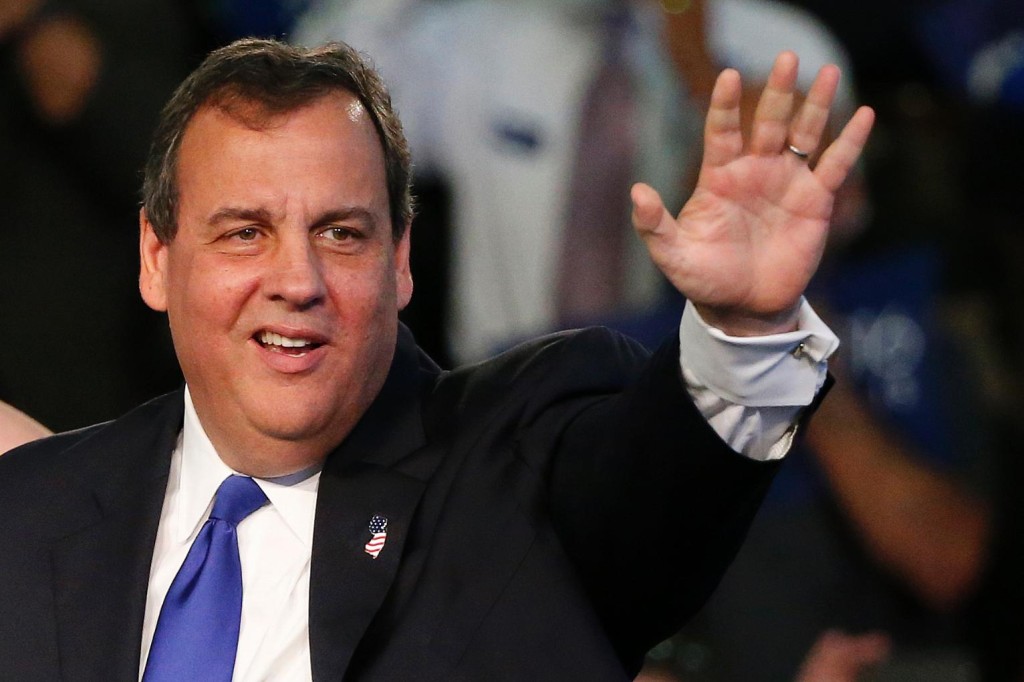
New Jersey Gov. Chris Christie offered a vigorous defense of post-Sept. 11 surveillance tactics on Monday, backing existing programs and calling for an expansion of intelligence-gathering capabilities even as Congress seeks ways to rein in the programs. Christie, who spent seven years as the U.S. attorney in New Jersey before he was elected governor, said that he had used provisions of the Patriot Act in pursuing terrorists after the Sept. 11 attacks and argued that the country must not weaken its anti-terror and surveillance laws. “We need to toughen our anti-terror and surveillance laws to give our services the legal mechanisms to do their job,” he said in a foreign policy-themed speech. A likely candidate for the Republican GOP presidential nomination, Christie took specific aim at former National Security Agency contractor Edward Snowden, who in 2013 leaked thousands of documents to journalists. Among Snowden’s revelations: NSA had for years been secretly collecting data about millions of Americans’ landline telephone calls. “When Edward Snowden revealed our intelligence secrets to the world in 2013, civil liberties extremists seized that moment to advance their very own narrow agenda,” he said. “They want you to think that there’s a government agent listening in every time you pick up the phone or Skype with your grandkids. They want you to think our intelligence community are the bad guys — straight out of the ‘Bourne Identity’ or some other Hollywood thriller. They want you to think that if we weakened our capabilities, the rest of the world would somehow love us more. “Let’s be clear, all these fears are exaggerated and ridiculous. When it comes to fighting terrorism, our government is not the enemy,” he said. Last week more than 300 House members voted to end the NSA’s bulk telephone records collection program, replace it with a system to leave the data with telephone companies, and allow the NSA to search the data on a case-by-case basis. The supporters of ending the program include Democrats and Republicans, and even the NSA doesn’t object to having private companies store the data. Independent reviews have found that the bulk collection program did not foil a single terrorist attack. Christie, however, slammed those pushing reforms as “intellectual purists” and insisted law-abiding citizens had nothing to fear from the surveillance efforts. “The vast majority of Americans are not worried about the government listening in on them, because it hasn’t happened. They are worried about what happens if we don’t catch the bad people who want to harm our country,” he said. Christie, who has said he will announce his White House plans by the end of June, spoke on the bank of the Piscataqua River, with the Portsmouth Naval Shipyard in the distance behind him. Throughout his speech, he painted himself as an antidote to what he described as President Barack Obama‘s weak leadership abroad. He argued the case for a more active U.S. presence overseas, bolstered by a larger military and increased defense spending. He also criticized president’s approach to the Islamic State militants and the emerging nuclear deal with Iran, as well as Russia’s backing of separatists in Ukraine and China’s encroachment in the South China Sea. “All these things are happening because American power is in retreat and we’ve backed away from the principles that made us a source of strength and stability,” Christie said. “No one understands any longer whom America stands with or whom we stand against. No one understands exactly what we stand for and what we’re willing to sacrifice to stand up for it. The speech is the third Christie has delivered in recent weeks in the early-voting state as he lays the groundwork for an expected campaign. His previous speeches focused on overhauling Social Security and reducing taxes on individuals and corporations. Christie has been working to re-establish his place in the top tier of likely candidates after the fallout from the George Washington Bridge scandal. He’ll hold his fifth town hall event in the state Monday evening. Republished with permission of The Associated Press.
GOP candidates divided over renewing USA Patriot Act
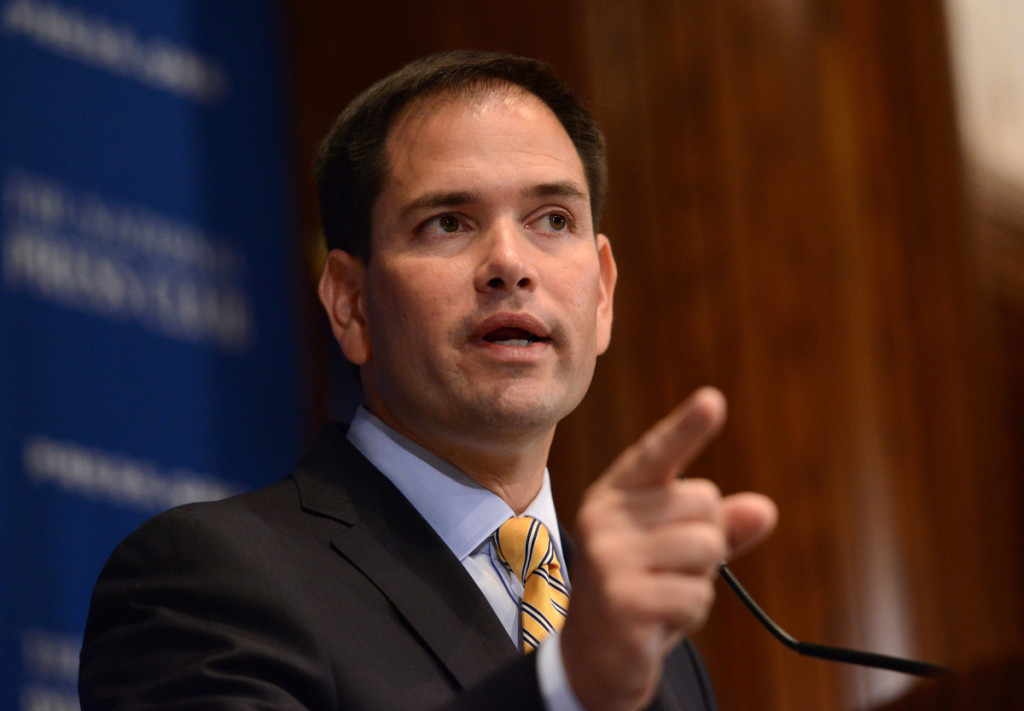
Republican senators eyeing the presidency split over the renewal of the USA Patriot Act surveillance law, with civil libertarians at odds with traditional defense hawks who back tough spying powers in the fight against terrorism. The political divide will be on stark display this month as Congress debates reauthorization of the post-Sept. 11 law ahead of a June 1 deadline. The broader question of privacy rights has gained attention since a former National Security Agency systems administrator, Edward Snowden, disclosed in 2013 that the NSA had been collecting and storing data on nearly every American’s phone calls for years. On one side, Sens. Marco Rubio of Florida and Lindsey Graham of South Carolina want Congress to permanently reauthorize parts of the law, giving the NSA much of its surveillance authority. If there were another attack, “the first question out of everyone’s mouth is going to be, `why didn’t we know about it?’” Rubio said this week in a speech on the Senate floor. “And the answer better not be, `because this Congress failed to authorize a program that might have helped us know about it.’” The rise of Islamic State militants, the continued threat from al-Qaida and the ongoing civil war in Syria have pushed national security to the forefront in the 2016 race for the GOP nomination, with some candidates determined to show their toughness. On NSA surveillance, however, Americans are wary of government intrusion. Sens. Ted Cruz of Texas and Rand Paul of Kentucky say the law infringes on citizens’ privacy. “They want nothing more than to keep the national security spy state growing until it tracks, traces and catalogues virtually every detail about every aspect of our lives,” Paul said in a campaign email to his supporters. “Once government bureaucrats know every aspect of our lives – what we watch, what we buy, what we eat, where we worship – it won’t be long until they try to run them `for our own good.’” Under the law, the NSA collects information on the number called and the date and time of the call, then stores it in a database that it queries using phone numbers associated with terrorists overseas. Officials say they don’t use the information for any other purpose, and that the legal powers that enable the program are essential to the hunt for terrorists. Opponents say the seizure and search of telephone company records violates Americans’ expectations of privacy under the Fourth Amendment. Adding a wrinkle to the debate was Thursday’s federal appeals court ruling that the bulk collection of Americans’ phone records is illegal. The court all but pleaded for Congress to sharpen the boundaries between security and privacy rights. The House is slated to vote next week on a bill to reauthorize the law while also ending the government’s dragnet collection of records, and Cruz has endorsed the measure, saying it “strikes the right balance between privacy rights and national security interests.” But Senate leaders, including Majority Leader Mitch McConnell, R-Ky., and Sen. Richard Burr, R-N.C., the chairman of the Intelligence Committee, have spoken forcefully for a competing measure to reauthorize the law as-is. Across Congress, the political divisions cut along complex lines. Libertarian-leaning Republicans like Cruz and Paul are aligned with many liberal Democrats, insisting that a secret intelligence agency should not be storing the records of every American phone call. But other Democrats and Republicans say the program is needed now more than ever given the Islamic State group’s determination to inspire terrorist attacks on American soil. Graham, the only one of the four who has not formally announced his candidacy, is siding with Rubio in favor of the NSA’s spy powers but competing with him for support among defense hawks. “I’m open-minded to doing reforms,” Graham told reporters Thursday. “I just don’t want to diminish the capacity of the program to prevent another 9/11. I believe if the program were in operation before 9/11, we probably would have prevented 9/11.” Sen. John McCain, the GOP’s 2008 presidential nominee, previewed one likely argument. He cited the incident in Texas last Sunday in which two gunmen were shot dead while trying to attack a provocative event that featured cartoon images of the Prophet Muhammad. In the aftermath, authorities described an alarming trend involving potential homegrown extremists with access to social media and possible exposure to Islamic State group propaganda. “We must do everything in our power to stop these attacks before they happen,” McCain, the Senate Armed Services Committee chairman, said. FBI Director James Comey said Thursday that although the bureau had opened a new investigation into one of the gunmen, Elton Simpson, agents had no reason to believe he was going to attack the event. Republished with permission of the Associated Press.


